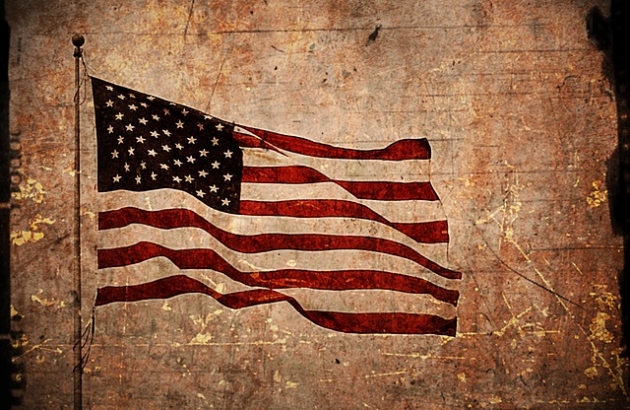Blog
New HeinOnline Database: Gun Regulation and Legislation in America
This article is republished with permission by W.S. Hein. View the original article here.
TOGETHER FOR THE FIRST TIME: Periodicals, legislative histories and government documents on this timely topic!
In the wake of several of the deadliest mass shootings in United States history and following the nineteenth anniversary of the massacre at Columbine High School, HeinOnline is offering Gun Regulation and Legislation in America free of charge to all U.S. Core subscribers, academics, and other institutional libraries.
About This Database
Containing more than 500 titles and 894 volumes, this new database includes periodicals, key compiled federal legislative histories, 157 relevant congressional hearings, 145 CRS Reports, Supreme Court briefs, and more! Users are linked to nearly 500 scholarly articles, an extensive bibliography, and a balanced selection of external resources to further research this subject. Research the National Firearms Act, the United States v. Miller and District of Columbia v. Heller decisions, and other key aspects of this subject.
Important titles include:
- The Omnibus Anti-Crime Act: A Legislative History of the Violent Crime Control and Law Enforcement Act of 1994, Public Law 103-322
- Brady Handgun Violence Prevention Act: A Legislative History of Public Law No. 103-159
- Journal on Firearms and Public Policy
- Legislative History of the Gun Control Act of 1968: P.L. 90-618
- Briefs filed in Supreme Court Cases of gun control
Importance of This Database
Gun regulation in the United States is arguably among the most controversial and heavily-debated topics in American history. The Second Amendment to the United States Constitution states: A well regulated Militia, being necessary to the security of a free state, the right of the people to keep and bear Arms, shall not be infringed.
The concept of gun control, firearms’ potential to cause mass casualties, and the interpretation of the 27 words comprising the Second Amendment have evolved considerably since the Bill of Rights was ratified in 1791. For instance, the National Firearms Act, which imposed a statutory excise tax on the manufacture and transfer of certain firearms and mandated registration of those firearms, was passed in 1934. This Act was challenged in 1939 in United States v. Miller, which ultimately upheld the constitutionality of the National Firearms Act. The opinion stated: “The Court cannot take judicial notice that a shotgun having a barrel less than 18 inches long has today any reasonable relation to the preservation or efficiency of a well regulated militia, and therefore cannot say that the Second Amendment guarantees to the citizen the right to keep and bear such a weapon.”
Later, in the landmark case District of Columbia v. Heller, the Court decided that “the Second Amendment guarantees an individual’s right to possess a firearm unconnected with service in a militia, and to use that arm for traditionally lawful purposes, such as self-defense within the home.” Still, Justice Antonin Scalia wrote that the right to firearms “is not unlimited.”
Opponents of gun control believe that additional laws or regulations on firearm purchases would not stop criminals from acquiring weapons or deter crime and that regulations would trespass only against law-abiding gun owners who are exerting their Second-Amendment right. Further, many opponents of gun control believe that better enforcement of current laws and improved mental health services would be more effective in preventing mass shootings than passing additional laws.
Conversely, those who favor stricter firearm regulation argue that it’s possible to enact regulations without infringing on the rights of law-abiding citizens to possess firearms. Proponents of these regulations believe that lives could be saved by requiring universal background checks at the federal level, mandating longer waiting periods between firearm purchase and acquisition, and implementing restrictions on certain types of high-capacity guns as well as limiting the amount of ammunition legally allowed to be purchased.
In order to better understand firearms-related violence, calls to Congress have been made to fund the CDC specifically to perform research in this area. Thus far, Congress has refused to do so. Private foundations have attempted to fill the gap, but have encountered a congressional roadblock: the Tiahrt Amendments, which prevent the Bureau of Alcohol, Tobacco, Firearms, and Explosives from sharing its firearms-tracking database with anyone excepting law enforcement.
Of course, this isn’t an all-or-nothing debate, and there are opinions all along the spectrum, from those few on the one hand who believe there should be no gun regulations at all to those few on the other who call for the wholesale repeal of the Second Amendment. For example, some gun owners, including the owner of Dick’s Sporting Goods, which recently made the choice to stop selling assault-style rifles and to sell firearms only to those over age 21, support the Second Amendment but simultaneously agree with Scalia’s statement that the Second Amendment “is not a right to keep and carry any weapon whatsoever in any manner whatsoever and for whatever purpose.”
This new HeinOnline collection brings together more than 500 titles dealing with this difficult and important topic. Included are periodicals, key compiled federal legislative histories, relevant congressional hearings, CRS Reports, Supreme Court briefs, and more. Links to nearly 500 scholarly articles, an extensive bibliography, and a balanced selection of external resources to further research this subject are also provided. Research the National Firearms Act, the Miller and Heller decisions, and other key aspects of this subject.
The purpose of this database is to provide a platform for research on the myriad issues related to gun regulation. Our goal is to facilitate productive discussions and help bring all sides of this argument together to effect positive change and prevent more senseless loss of life.





